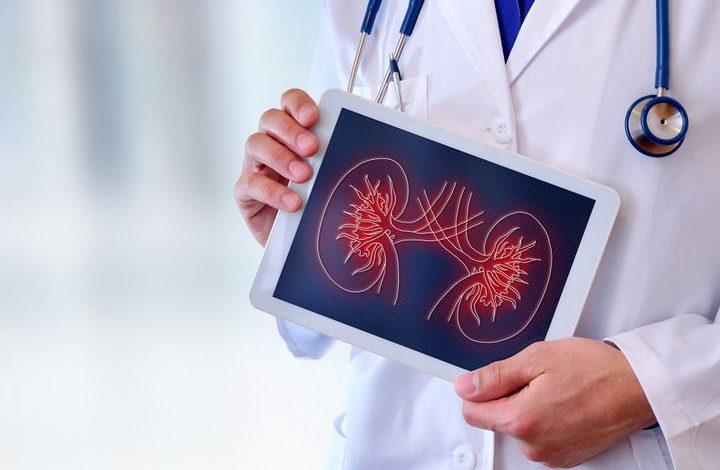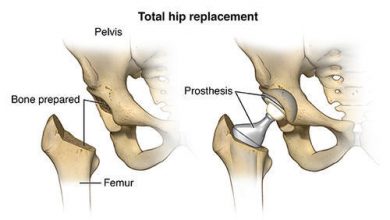What are the first signs of kidney disease?

Chronic kidney disease, commonly known as chronic kidney failure, is associated with a progressive reduction of kidney function. Wastes and excess fluids in your blood are filtered by your kidneys and removed in your Urine. Advanced chronic renal disease can result in extremely high amounts of fluid, electrolytes, and wastes in your body.
Your kidneys are essential to your overall health. It would be best to watch for early warning indications of issues or problems that might lead to renal failure. This blog will help you understand kidney disease symptoms at an early stage and the treatments available.
What is kidney disease?
Chronic kidney disease (CKD) indicates that your kidneys have been damaged and can no longer keep you healthy by filtering your blood. Most patients do not exhibit symptoms in the early stages of the disease.
However, waste accumulation in the blood can increase significantly with the progression of Kidney disease. This accumulation will further make you feel ill.
Kidney problems may also cause Other issues such as:
- Excessive blood pressure
- Weak bones,
- Poor nutritional status
- Anemia,
- Nerve damage
Because the kidneys are essential to many bodily activities, kidney failure raises the risk of heart and blood vessel disease. While these issues may develop slowly and without symptoms, they can progress to renal failure, which can occur suddenly.
When the kidneys fail, dialysis or a kidney transplant are required to survive. Renal failure with replacement treatment is another term for kidney failure (KFRT).
What are the early signs of kidney illness?
Here are some typical kidney disease signs of being careful of:
- Frequent Tiredness –
The kidneys filter waste from your blood and eliminate it in your Urine. Toxins can accumulate when your kidneys do not function properly. Fatigue is a typical red alert for kidney disease. You may feel exhausted, tired, weak, or unable to concentrate. The kidneys produce a hormone that directs your body to create red blood cells. When you have fewer of them, your blood cannot supply enough oxygen to your muscles and brain.
- Poor sleep –
Poor sleep affects kidney health and function. Sleep-wake cycle regulates our kidney function. Your kidneys work 24/7, and sleep helps coordinate their workload. The chronic renal disease causes sleep difficulties.
Poor sleep, daytime sleepiness, and poor nighttime sleep are early kidney disease symptoms. Early indicators of kidney illness include:
- A poor sleep pattern.
- Increased tiredness throughout the day.
- Poor overnight sleep.
- Other symptoms.
The collection of toxins in your body is the major cause of these symptoms.
- Skin Dryness & itching –
Itching and scratching of the skin are frequent in persons with severe chronic renal disease (CKD).
When your kidneys cannot clear out toxins accumulating in the blood, this may result in a rash or itching. With time, your kidneys may become unable to balance the number of minerals & nutrients in your body. This can result in mineral and bone disorders, making your skin dry and irritated.
- Frequent urination –
If you need to urinate more frequently, especially at night, this might be one of the most indicable kidney disease symptoms. If your kidney filters get damaged, it may lead to frequent urination issues. In males, this might indicate a urinary infection or an enlarged prostate.
- Blood in Urine –
Although blood in the Urine is not always a sign of kidney issues, it can be an essential warning sign of a serious health issue. You should never ignore Urine with blood.
The kidneys are in charge of filtering toxins from your blood. They normally reserve the blood cells throughout this process. However, when the kidney function is damaged, certain blood cells begin to leak and appear in the Urine.
- Swollen Face and Feet –
When your kidneys cannot remove salt effectively, fluids accumulate in your body. This might result in swollen hands, ankles, feet, legs, or even a puffy face. Protein leaking from your Urine might also cause heaviness around your eyes.
- Muscle Cramps –
Cramps in the legs and elsewhere can indicate acute renal failure. An imbalance in sodium, calcium, potassium or other electrolytes can damage the function of your muscles and nerves.
- Decreased appetite –
Toxin buildup caused by decreased kidney function may cause you to lose your appetite, whether full or too unwell or sleepy to eat.
Who are people at a higher risk of getting kidney disease?
People who are at risk of getting kidney disease include those who:
- suffer from diabetes, have high blood pressure
- have a history of heart disease (heart failure or a heart attack) or have had a stroke
- have a history of renal disease or kidney failure in your family
- are overweight, with a BMI of 30 or higher
- has smoked or is now smoking
- are 60 years of age or older
- having had an acute kidney injury in the past
It is also crucial to remember that persons who do not have any of the risk factors listed above might acquire the renal disease.
What tests help to detect kidney disease?
Early detection and treatment can typically prevent kidney disease from developing and lower the chance of kidney failure. If you experience any kidney disease symptoms must consult a kidney doctor without any delay.
Your doctor may begin by reviewing your medical history and a physical examination.
Your doctor will select diagnostic tests for kidney disease based on your symptoms, age, medical history, lifestyle, and overall health. Kidney disease tests include:
- urine tests
- blood tests
- blood pressure test
- imaging
- biopsy
What are the treatments available for kidney illness?
The best way to treat kidney illness depends on the reason, the severity of your symptoms, the stage of kidney disease, and general health.
A kidney doctor may recommend or perform the following treatment options for a patient with renal issues:
- Lifestyle changes
- Medicinal treatment
- Kidney Dialysis
- kidney transplantation
Tips for Kidney disease prevention –
- Medication and lifestyle modifications and a regular visit to a kidney expert Nephrologist in Bangalore they can help avoid or postpone kidney failure.
- Healthy lifestyle habits to keep your kidneys in proper functioning order include:
- Eat plenty of fruits and vegetables.
- Each week, consume lean meats such as chicken and fish.
- Consume just tiny portions of salty or fatty foods.
- Drink lots of water and reduce your intake of sugary soft drinks.
- Keep a healthy weight.
- Maintain your fitness. Do at least 30 minutes of heart-rate-raising physical exercise five days a week, such as walking, lawn mowing, biking, swimming, or mild aerobics.
- Stop smoking
- Limit your alcohol consumption to no more than two small drinks per day for men and one small drink per day for women.
- Get monitoring your blood pressure regularly.
- Take steps to relax and minimize your stress levels.
Conclusion – Kidney failure can occur unexpectedly or due to long-term injury or disease. Diabetes, high blood pressure, exposure to high amounts of medicine, acute dehydration, renal damage, and other conditions are potential causes of kidney failure.
There are five phases of kidney disease. These range from mild to severe renal failure. As the stages improve, symptoms and problems may increase.
If you have renal failure, you can consult with a nephrologist in Bangalore about the best treatment choices for your condition.




